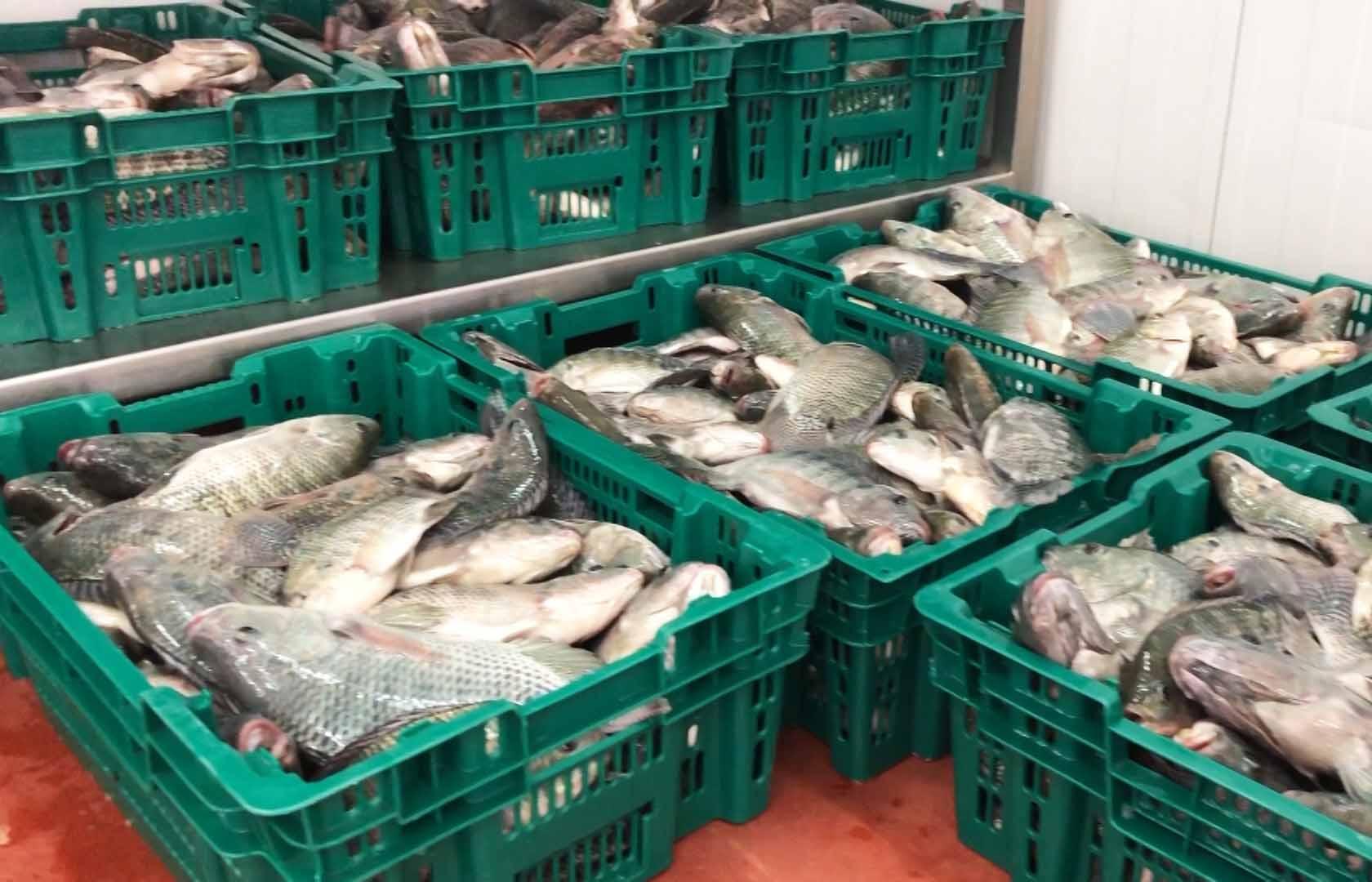Africa-Press – Ghana. A once-promising $7.48 million fish processing plant, strategically located on the shores of Elmina near the historic Elmina Castle, now lies in a state of severe neglect and decay.
Constructed with funding from the EXIM Bank of India and executed by Expotec International Limited, the facility, which shares a boundary with the Elmina Harbour, stands today as a stark symbol of missed opportunities and administrative inertia.
State-of-the-Art Capacity
The plant, with a processing capacity of 100 metric tons, was equipped with modern machinery for descaling, gutting, filleting, and packaging fish, as well as cold storage and a fish waste-to-animal feed conversion system. Despite its potential, it has only operated intermittently—as an ice block production site.
Commissioned in 2016 by then-President John Dramani Mahama, just a week before the general election, the facility was intended to modernize fish processing, packaging, and storage to reduce post-harvest losses and increase fisherfolk incomes.
Following the inauguration, government engaged Raphael Spectrum Company Limited for a six-month supervisory period, after which full management reverted to state authorities.
Current State of Decay
A recent visit revealed alarming deterioration of equipment and infrastructure. Exposed to the harsh Atlantic Ocean climate, the facility has suffered from lack of maintenance and operational funding.
At dawn during the visit, free-range chickens were seen roaming freely from the premises. Inside, the facility was in darkness—no electricity was available except for faint reflections from the adjacent harbour.
“We currently don’t have electricity here,” confirmed a man who identified himself as Mr. Twumasi, pointing to a broken electrical panel that once powered the plant.
The entrance gate was barely hanging, surrounded by overgrown weeds and encroaching papaya and cassava plants. A security guard admitted that no funds were available to hire workers to clear the area.
Accelerated Corrosion
Rusting iron bars, corroded fuel tanks, air conditioners, gates, and light poles have turned the facility into a ghost of its former self. Salt-laden air from the sea has exacerbated metal corrosion, leading to structural instability. Some bars have collapsed; others are on the brink.
Solar batteries have been left exposed, while all the iron light poles have rusted extensively, posing safety risks.
Institutional Silence and Disappointment
Sources within the Ministry of Food and Agriculture and the Fisheries Commission confirmed that the plant operates under a public-private partnership arrangement. However, they explained that after Indian technicians departed due to machine faults and high electricity costs, operations stalled.
The facility has since become a target for theft, with metal railings being stolen, prompting increased security.
“We are deeply saddened by the state of the facility,” one source said. “This was a multi-million-dollar investment meant to transform the local economy.”
Although several investors have shown interest in reviving the plant, bureaucratic red tape has stalled progress.
Local Voices of Frustration
Local fishermen and residents expressed deep frustration. Kobina Amoah, a 52-year-old fisherman, recalled the excitement that greeted the plant’s commissioning in 2016. But nearly a decade later, he lamented, the factory still hasn’t fulfilled its promise.
“Now we suffer huge post-harvest losses,” he said. “We need ice and proper storage, but the factory only produces ice blocks.”
Madam Nana Aba Amissah, a 35-year-old fishmonger, called on the government and relevant authorities to intervene. “This is affecting our lives, our children’s future,” she said.
A nearby carpenter involved in boat repair described the situation as a “hardship” and a wasted opportunity for economic empowerment.
Political Promises Unfulfilled
Stakeholders once appealed to the Parliamentary Select Committee on Government Assurances during a visit three years ago, urging refurbishment and integration of the plant into the Elmina Fishing Harbour Project. Those calls went unanswered.
In 2022, then-Minister for Transport, Mr. Kwaku Ofori Asiamah, during an inspection tour, directed the refurbishment of the facility to complement the new harbour. That directive was never executed.
A Future in Limbo
The current state of the fish processing plant underscores a deeper issue of infrastructure mismanagement and lost development potential. Once seen as a game-changer for Elmina’s fishing community, the facility now stands as a grim reminder of neglect.
Without urgent intervention, the promise it once held will remain buried under rust, weeds, and silence.
Source: Ghana News Agency
For More News And Analysis About Ghana Follow Africa-Press







